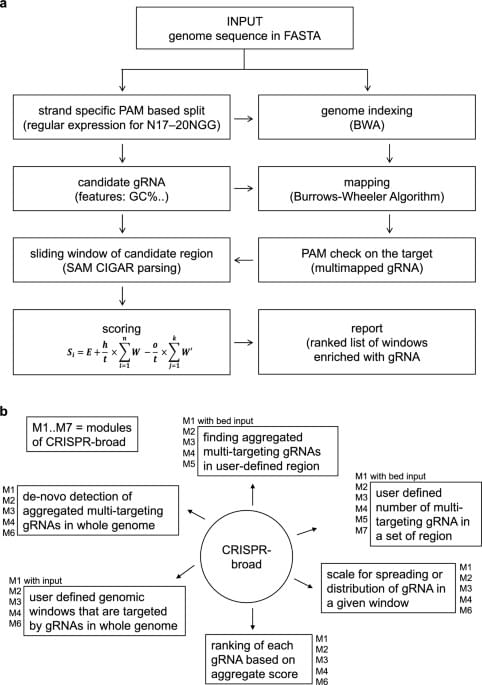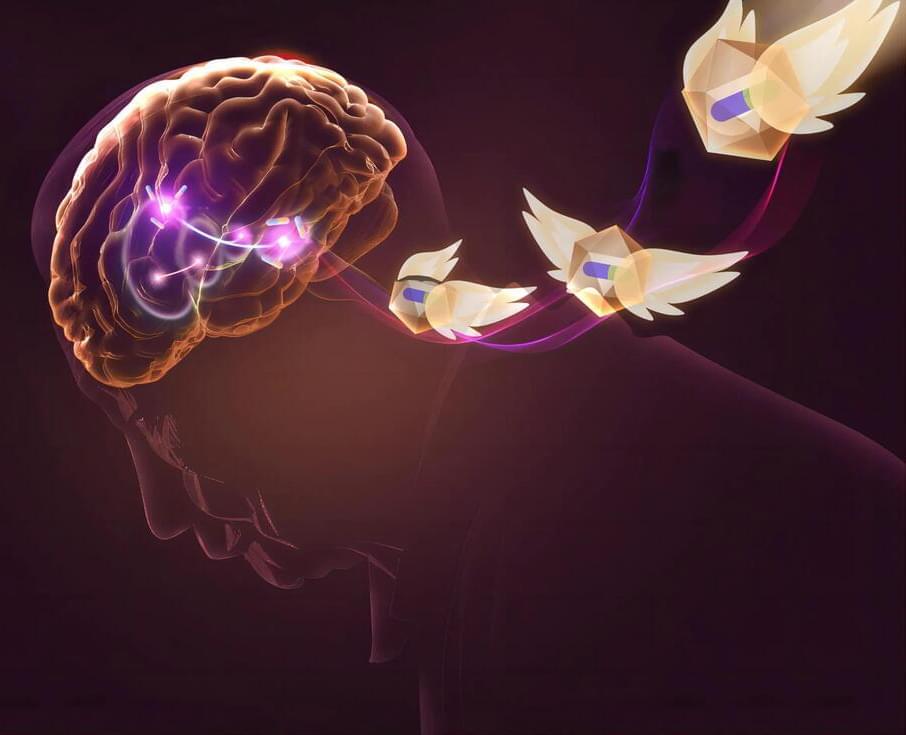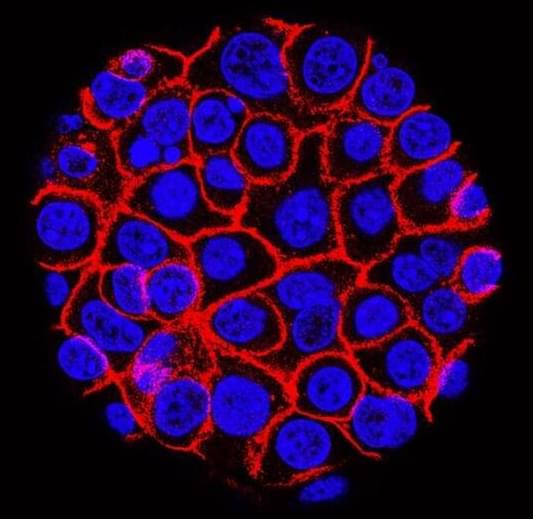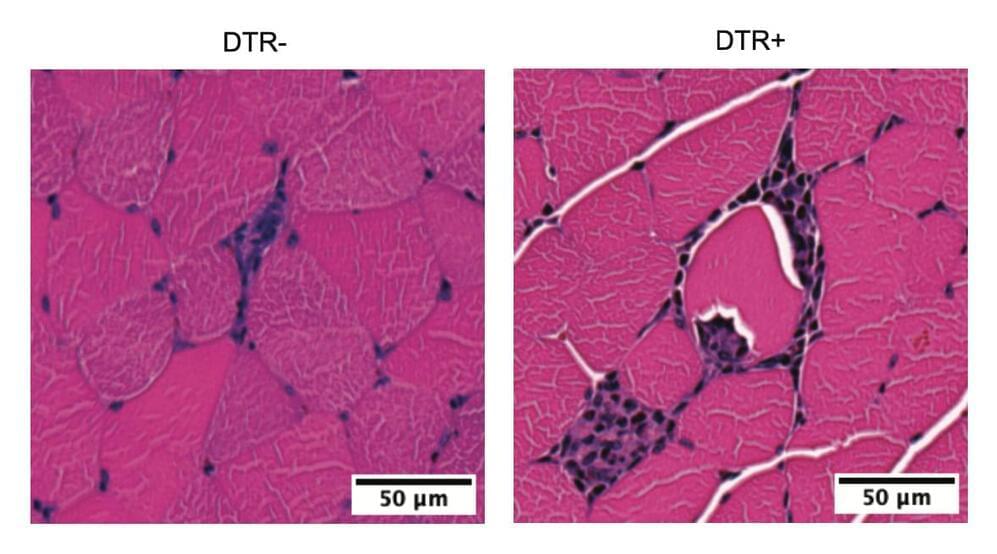In CRISPR-Cas and related nuclease-mediated genome editing, target recognition is based on guide RNAs (gRNAs) that are complementary to selected DNA regions. While single site targeting is fundamental for localized genome editing, targeting to expanded and multiple chromosome elements is desirable for various biological applications such as genome mapping and epigenome editing that make use of different fusion proteins with enzymatically dead Cas9. The current gRNA design tools are not suitable for this task, as these are optimized for defining single gRNAs for unique loci. Here, we introduce CRISPR-broad, a standalone, open-source application that defines gRNAs with multiple but specific targets in large continuous or spread regions of the genome, as defined by the user.
Category: biotech/medical – Page 657
“Our study demonstrates how telemedicine successfully integrates medical and behavioral treatment.”
The practice of providing medical services remotely via telecommunications technology is known as telemedicine.
I going to make a greatest artwork as I can, by my head, my hand and by my mind/iStock.
The practice has gained prominence, especially in response to the COVID-19 pandemic, for its ability to provide more accessible and convenient healthcare services. Now, a new study conducted on 12 opioid treatment programs is finding that it may be more successful at treating patients than more conventional approaches such as offsite referrals.
Mitophagy-inducing compound (MIC), a natural compound in plants, may combat age-related diseases by promoting mitochondrial health through mitophagy.
Mohammed Haneefa Nizamudeen / iStock.
According to a statement by scientists, mitophagy is a process that removes and recycles damaged mitochondria in multicellular organisms.
The device could one day be used for longer durations inside the body and used to power cells cells that target chronic diseases as well.
Ignatiev/iStock.
In 2021, the research team earned a $33 million contract from the Defense Advanced Research Projects Agency (DARPA) to develop an implantable “living pharmacy” to control the sleep and wake cycles inside the body. In this approach, researchers implant living cells inside the body that produce the necessary therapeutics, freeing the individual from taking medicines.
Scientists from the Shenzhen Institute of Advanced Technology (SIAT) within the Chinese Academy of Sciences (CAS), along with their partners, have designed a targeted gene therapy approach to mitigate the primary motor symptoms of Parkinson’s disease in both rodents and nonhuman primates.
The study was recently published in the journal Cell.
Parkinson’s disease, characterized by the loss of midbrain dopaminergic neurons, is one of the most common neurodegenerative diseases in the elderly population, affecting more than 6 million people worldwide.
An AI that can identify the patients most at risk of pancreatic cancer could lead to earlier detection of the deadly disease, which currently kills 88% of patients within 5 years of diagnosis.
The challenge: People with pancreatic cancer typically don’t experience any symptoms until a tumor is large or the cancer has spread to other organs. As a result, most aren’t diagnosed until their cancer is advanced and much harder to treat.
Screening people without symptoms for pancreatic cancer could lead to earlier detection, but the only tests for it are expensive or invasive. As a result, they’re reserved for the few people doctors believe are at high risk of pancreatic cancer, due to a family history of the disease, for example.
The connection between exercise and inflammation has captivated the imagination of researchers ever since an early 20th-century study showed a spike of white cells in the blood of Boston marathon runners following the race.
Now, a new Harvard Medical School study published in Science Immunology may offer a molecular explanation behind this century-old observation.
The study, in mice, suggests that the beneficial effects of exercise may be driven, at least partly, by the immune system. It shows that muscle inflammation caused by exertion mobilizes inflammation-countering T cells, or Tregs, which enhance the muscles’ ability to use energy as fuel and improve overall exercise endurance.
Join us on Patreon! https://www.patreon.com/MichaelLustgartenPhD
Discount Links:
Epigenetic, Telomere Testing: https://trudiagnostic.com/?irclickid=U-s3Ii2r7xyIU-LSYLyQdQ6…M0&irgwc=1
Use Code: CONQUERAGING
NAD+ Quantification: https://www.jinfiniti.com/product/intracellular-nad-test/
Use Code: ConquerAging At Checkout.
At-Home Metabolomics: https://www.iollo.com?ref=michael-lustgarten.
Use Code: CONQUERAGING At Checkout.
Oral Microbiome: https://www.bristlehealth.com/?ref=michaellustgarten.
Enter Code: ConquerAging.
At-Home Blood Testing (SiPhox Health): https://getquantify.io/mlustgarten.
Although the transcriptomic signature of the tumor could not predict recurrence or the risk of progression, that of the TAN sample could successfully predict the recurrence of the disease and aid the stratification of patients into high-and low-risk groups.
This indicates the potential role of TAN tissue in future recurrence and its utility in predicting prognosis. However, TAN tissue could not accurately predict the formation of a new primary tumor.
Optimal culture conditions for cynomolgus monkey naive embryonic stem cells and improved procedures for chimeric embryo culture were developed to allow for high (20%–90%) donor cell contribution to chimeric monkeys.








